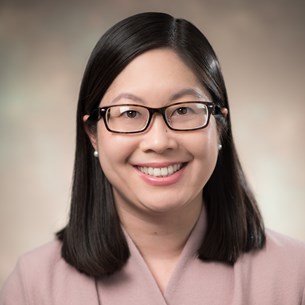Meeting
2017 ASCO Quality Care Symposium

Divisions of Hematology/Oncology and Geriatrics, University of California, San Francisco, San Francisco, CA
Melisa L. Wong, Hala Borno, Reena Mahajan, Kara E. Bischoff, Brook Calton, Emily K. Bergsland, Won Kim, Rahul Raj Aggarwal, Katy K. Tsai, Pelin Cinar
Background: Advance care planning (ACP) is an important component of high quality care for cancer patients. A measurable and early step in the ACP process is for patients to identify a surrogate decision maker and document this information in the medical record. Methods: To improve documentation of surrogate decision makers for stage IV cancer patients, we designed a hematology/oncology fellow-led multidisciplinary quality improvement (QI) initiative including: 1) ACP education for fellows, 2) ACP patient education materials and online resources, and 3) standardized note templates for surrogate documentation. We aimed to document surrogate decision makers or discussions for > 50% of stage IV cancer outpatients evaluated by a fellow cumulatively over the 2016-2017 academic year. Patients seen for second opinion visits were excluded. Audit and feedback of individual fellow and group results were conducted twice a month. During each audit period, we randomly selected 2 medical oncology clinic sessions per outpatient fellow and reviewed all new patient and follow-up notes for surrogate decision maker documentation. Results: Prior to implementation, baseline surrogate decision maker documentation by fellows was 2% (1 out of 55 stage IV cancer patients seen during 2 randomly selected clinic sessions per outpatient fellow from January to March 2016). Since implementation in July 2016, 20 fellows have participated during outpatient rotations. During randomly selected clinic sessions from July to October 2016, 156 eligible stage IV cancer patients were evaluated by fellows. Surrogate decision makers or discussions were documented for 64 patients (41%). Overall, fellows felt comfortable discussing surrogate decision making with patients but often forgot to address it during the visit. Conclusions: Our fellow-led QI initiative improved surrogate decision maker documentation for stage IV cancer patients from 2% to 41%. A centralized ACP navigator (which includes a surrogate decision maker section) was recently added to our electronic medical record. As part of the ongoing efforts to achieve our cumulative goal, we will leverage this new feature to engage clinic staff in documentation of surrogate decision making as well.
Disclaimer
This material on this page is ©2024 American Society of Clinical Oncology, all rights reserved. Licensing available upon request. For more information, please contact licensing@asco.org
2017 ASCO Quality Care Symposium
Poster Session
Poster Session A: Cost, Value, and Policy in Quality; Practice of Quality
Cost, Value, and Policy in Quality,Practice of Quality
Learning from Projects Done in a Practice
J Clin Oncol 35, 2017 (suppl 8S; abstract 63)
10.1200/JCO.2017.35.8_suppl.63
63
C4
Abstract Disclosures
2023 ASCO Quality Care Symposium
First Author: Sarah Ananda Gomes
2022 ASCO Quality Care Symposium
First Author: Matthew Smeltzer
2021 ASCO Annual Meeting
First Author: Callie Berkowitz
2024 ASCO Annual Meeting
First Author: Dhaval Patel